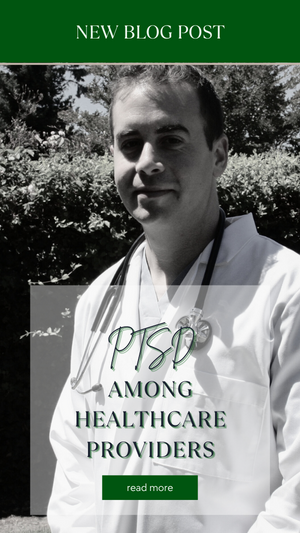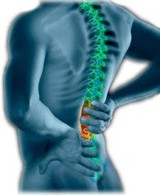PTSD among Healthcare Workers
June is PTSD Awareness month and this blog is adding to the conversation that many want or need to be a part of. Post Traumatic Stress Disorder (PTSD) is a mental health condition that can affect anyone who has experienced or witnessed a traumatic event. While PTSD is often associated with military personnel, it is important to recognize that healthcare providers are also at risk due to the high-stress nature of their work. In this blog post, we will delve into the impact of PTSD on healthcare providers, explore available resources, and discuss coping strategies to address this significant issue.
Understanding PTSD Among Healthcare Providers:
Traumatic Events in Healthcare: Healthcare providers frequently encounter traumatic events such as life-threatening emergencies, patient deaths, or critical incidents. The emotional toll of witnessing human suffering, making difficult decisions, and experiencing personal safety concerns can contribute to the development of PTSD.
Risk Factors: Factors such as repeated exposure to trauma, long working hours, high patient volumes, insufficient support systems, and the pressure to deliver optimal care under challenging circumstances increase the likelihood of healthcare providers developing PTSD.
Symptoms of PTSD: Common symptoms of PTSD may include intrusive memories or flashbacks, avoidance of reminders of the traumatic event, negative changes in mood and cognition, and hyperarousal. These symptoms can significantly impact a healthcare provider's well-being, job performance, and personal relationships.
Coping Strategies for Healthcare Providers:
Self-Care: Prioritize self-care to maintain emotional and physical well-being. Engage in activities that promote relaxation, such as exercise, mindfulness, hobbies, and spending time with loved ones. Taking breaks, setting boundaries, and ensuring adequate rest are essential to prevent burnout.
Seek Support: Reach out to trusted colleagues, friends, or family members who can provide a listening ear and empathetic support. Sharing experiences and emotions can help alleviate the burden of PTSD. Consider joining support groups specifically designed for healthcare providers facing similar challenges.
Professional Counseling: Consult a mental health professional experienced in trauma and PTSD. Therapy can provide a safe and confidential space to explore emotions, develop coping strategies, and promote healing. Techniques such as cognitive-behavioral therapy (CBT) and eye movement desensitization and reprocessing (EMDR) have shown effectiveness in treating PTSD.
Workplace Support: Advocate for a supportive work environment that acknowledges and addresses the impact of trauma on healthcare providers. Encourage open communication, provide debriefing sessions after critical incidents, and implement employee assistance programs (EAPs) that offer confidential counseling and mental health resources.
Resources for Healthcare Providers:
National Institute of Mental Health (NIMH): The NIMH offers comprehensive information on PTSD, including symptoms, treatment options, and research updates. Their website serves as a valuable resource for healthcare providers seeking to understand and address PTSD.
Employee Assistance Programs (EAPs): Many healthcare organizations have EAPs in place to provide confidential counseling, mental health resources, and referral services for employees. These programs can be a valuable source of support for healthcare providers seeking assistance.
Professional Associations and Societies: Professional organizations, such as the American Psychological Association (APA) or the American Nurses Association (ANA), often provide resources, educational materials, and guidelines to support healthcare providers' mental health and well-being.
Trauma-Informed Care Training: Seek out training programs and workshops on trauma-informed care. This knowledge can help healthcare providers better understand and respond to patients' traumatic experiences, reducing the risk of developing secondary trauma and PTSD.
PTSD among healthcare providers is a serious concern that must be addressed. By recognizing the impact of traumatic events on healthcare professionals, promoting self-care, seeking support, and utilizing available resources, we can better cope with and manage PTSD. Let us work together to ensure the well-being of those who devote their lives to caring for others.
At Green Scrubs, we believe looking good and feeling good go hand in hand. Providing awesome surgical hats may be our passion but keeping this community of health care heroes safe is our inspiration. We will continue to offer news and tips in the hope that they give some clarity and guidance.
Recent Posts
-
Lower Back Pain in Nurses: Causes, Treatment, and Prevention
Nurses are at a high risk of developing low back pain (LBP) due to the physical demands of their job
-
Dealing with Alzheimer's Disease as a Health Care Worker and protecting yourself from the onset of Alzheimer's
Alzheimer's disease is a progressive brain disorder that causes memory loss and other cognitive decl



